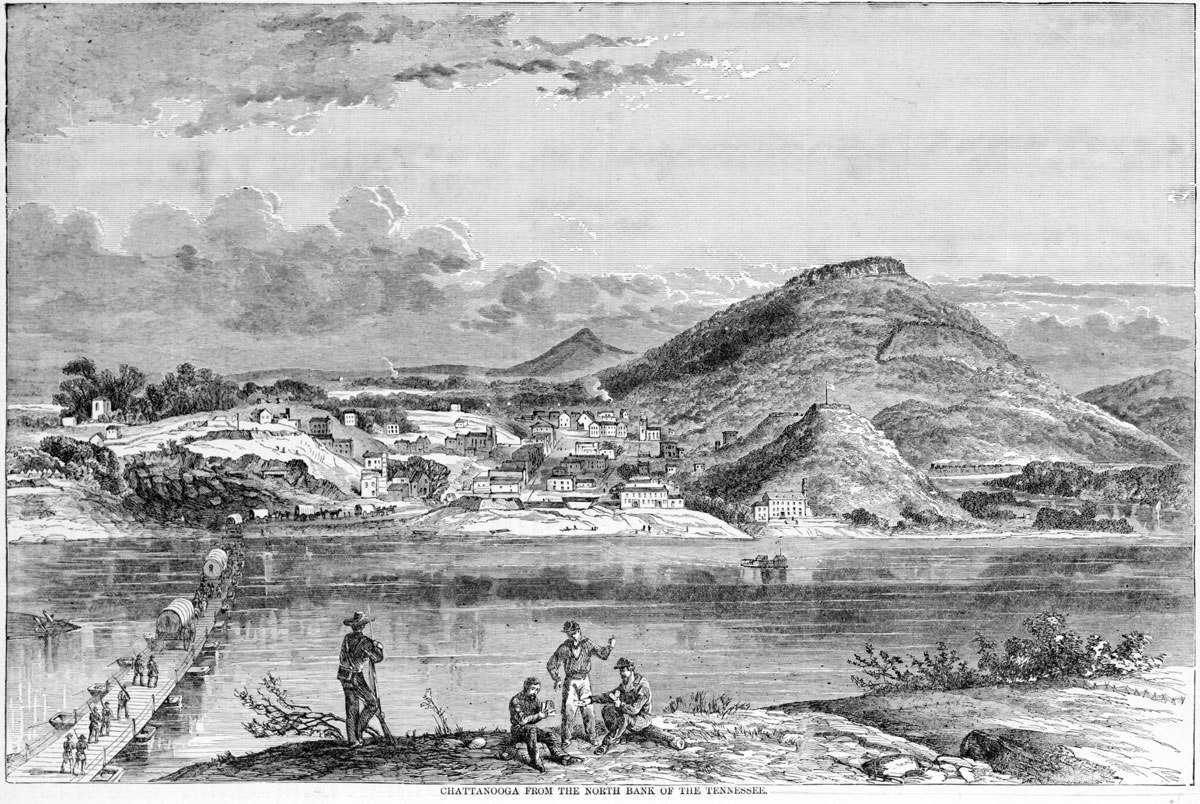
Chattanooga campaign
Chattanooga, Tennessee, USAThe Chattanooga campaign was a series of maneuvers and battles in October and November 1863, during the American Civil War. Following the defeat of Maj. Gen. William S. Rosecrans's Union Army of the Cumberland at the Battle of Chickamauga in September, the Confederate Army of Tennessee under Gen. Braxton Bragg besieged Rosecrans and his men by occupying key high terrain around Chattanooga, Tennessee. Maj. Gen. Ulysses S. Grant was given command of Union forces in the West, now consolidated under the Division of the Mississippi. Significant reinforcements also began to arrive with him in Chattanooga from Mississippi and the Eastern Theater. On October 18, Grant removed Rosecrans from command of the Army of the Cumberland and replaced him with Major General George Henry Thomas.
During the opening of a supply line (the "Cracker Line") to feed the starving men and animals in Chattanooga, a force under Maj. Gen. Joseph Hooker fought off a Confederate counterattack at the Battle of Wauhatchie on October 28–29, 1863. On November 23, the Army of the Cumberland advanced from the fortifications around Chattanooga to seize the strategic high ground at Orchard Knob while elements of the Union Army of the Tennessee under Maj. Gen. William Tecumseh Sherman maneuvered to launch a surprise attack against Bragg's right flank on Missionary Ridge. On November 24, Sherman's men crossed the Tennessee River in the morning and then advanced to occupy high ground at the northern end of Missionary Ridge in the afternoon. The same day, a mixed force of almost three divisions under Maj. Gen. Joseph Hooker defeated the Confederates in the Battle of Lookout Mountain. The next day they began a movement toward Bragg's left flank at Rossville.
On November 25, Sherman's attack on Bragg's right flank made little progress. Hoping to distract Bragg's attention, Grant ordered Thomas's army to advance in the center and take the Confederate positions at the base of Missionary Ridge. The untenability of these newly captured entrenchments caused Thomas's men to surge to the top of Missionary Ridge and, with the help of Hooker's force advancing north from Rossville, routed the Army of Tennessee. The Confederates retreated to Dalton, Georgia, successfully fighting off the Union pursuit at the Battle of Ringgold Gap. Bragg's defeat eliminated the last significant Confederate control of Tennessee and opened the door to an invasion of the Deep South, leading to Sherman's Atlanta campaign of 1864.
